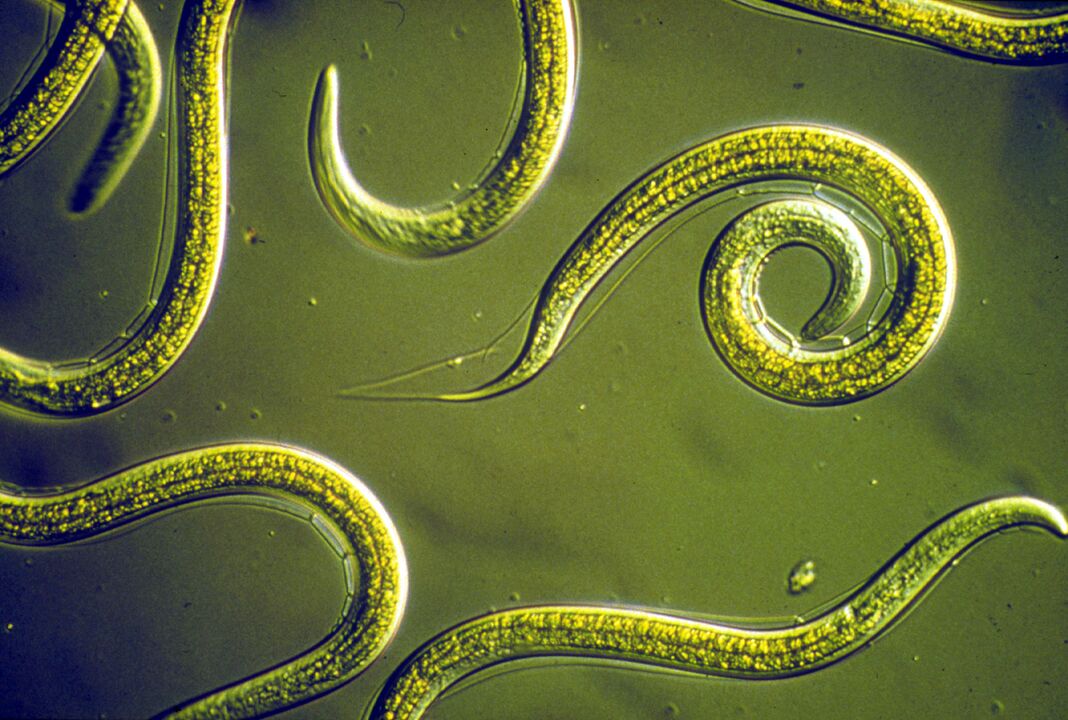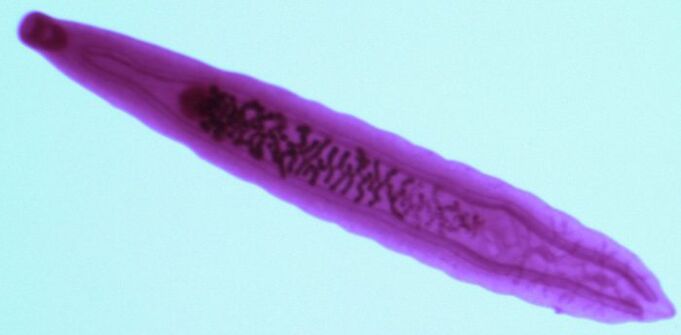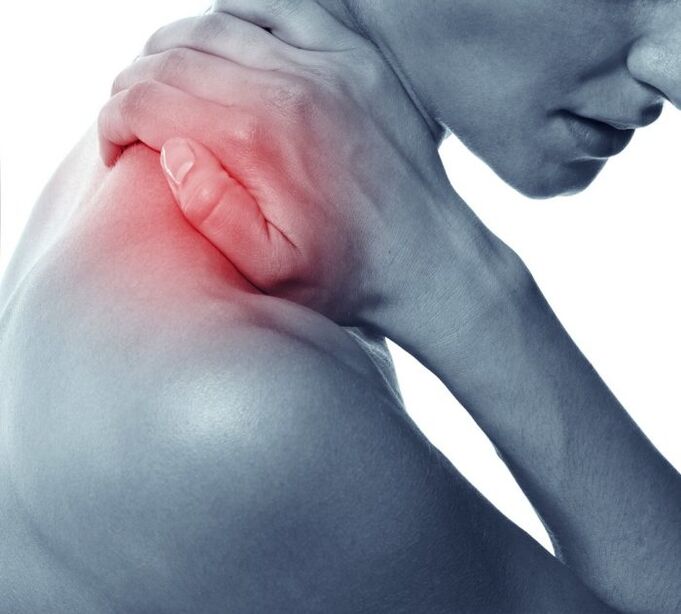Anyone can experience worm infection. Young children - attending kindergarten, adults - for other reasons. Despite all the preventive measures, you need to know the signs of worms in humans in order to notice the disease in time and start treating it. What are worms, where are they located and how do they manifest - we will examine them in more detail.
Which organs can be affected by worms?

There are two types of invasions: abdominal and tissue. Depending on the species, habitats are also divided into:
- Caviar worms settle in the small and large intestines. In particular, the first parts of the small intestine are affected by a wide tapeworm, fluke worm, roundworm. The lower part of the small intestine is the habitat of the dwarf tapeworm, pinworm. The colon most often becomes the habitat of the whipworm.
- Tissue helminths affect organs of any kind: liver, brain, lymph nodes, bile ducts.
Important! It is impossible to determine the signs of the presence of worms in a patient in the initial stage of development of an invasion. While the number of worms is small, toxic waste poisoning is within normal limits, the body itself copes with the invasion. The appearance of characteristic or acute symptoms indicates a significant increase in the number of helminthic infestations: the maturation of individuals and their dynamic development.
Types of chains

By defining the signs of worms in adults, you need to understand what kind of invasion we are talking about:
- Vlasoglavy. The chains were named for the filamentous body with a thickening at the rear end. The life cycle of parasites is straightforward. Habitat - tropics, subtropics. Chains are located in the gut, so they are difficult to carve.
- Nematodes. A suborder of roundworms that live in nature and in the human body. The most famous representatives: round worms, red worms.
- Fluke. Flat type fluke. They represent a major threat to the carrier body, as they are able to be placed in any organ, system. Representatives: schistosomiasis, opisthorchiasis worms.
- Pork ribbon (ribbon). Tapeworms are hermaphrodites. Having strong hooks on the head to stick to the walls, they can affect the brain, intestines, liver, eyes, muscles. Consequences of not treating: paralysis, death of the carrier.
All types of worms are found in the human body. After being ill with ascariasis, enterobiasis, diphyllobothriasis, the patient experiences nutrient deficiency, the intestines cease to normally absorb food debris. Consequences of invasion: metabolic disorders, neurohumoral reaction.
Some facts about the ways of infection:
- Ascariasis - vegetables, fruits, unwashed hands;
- Raw or slightly salted fish, caviar - diphyllobothriasis;
- Pinworms - contact-household method. The period of development is up to 60 days, after which there is a chronic phase of invasion, characterized by a decrease in immunity and a high incidence of infectious diseases, exacerbations of chronic processes.
Signs of worms in humans
The general symptoms of worms in adults depend on the location of the helminths. The main danger is parasites that settle on vital organs. Worms appeared, symptoms are implicit: weakness, cough. And though for a complete diagnosis, examination is necessary. However, there are a number of signs by which you can determine: where the worms are and if they exist at all.
Brain

Most often, there are no obvious symptoms, but if the worms live in the human brain, the patient may experience:
- continuous periods of vomiting;
- frequent vomiting;
- severe weakness;
- lethargy of consciousness;
- decreased visual acuity, hearing;
- body temperature fluctuations for no apparent reason;
- epilepsy.
Fact! Most often, parasites in the brain are found only after autopsy.
In the body

Hundreds of known types of parasites can take up residence in a patient's body. It is difficult to determine the presence of worms in an adult's body. Symptoms vary according to the areas of localization: in the heart, liver, lungs, under the skin. Common signs of worms in an adult:
- muscle, joint pain;
- skin deterioration;
- weightlifting: landing or placement;
- persistent severe fatigue;
- immediate decrease in immunity.
Fact! Some worms have the ability to crawl from the anus to the perineum, penetrate the bloodstream into other organs, appear in the abdominal cavity, and affect the nose and ears.
In the intestines

The most common worms in humans, whose symptoms are more pronounced, can be in the large and small intestines. Infection occurs through the mouth, by contact. The period of larval and adult development from the egg takes place in the intestinal mucosa. The parasite takes in nutrients, blocking their absorption from the intestines. Because of this, there are intestinal problems that cause helminths in adults. Symptoms:
- the stomach is often bloated;
- the ornament is broken;
- bloating appears;
- changes in body weight;
- constantly and strongly want to eat.
Of course, with worms, the symptoms can be varied, overloaded with characteristic signs of stomach disease, if the patient has any. This is why accurate diagnostic measures are so important. Only a specialist will determine exactly: where the worm is located, the type and dynamics of the development of the invasion.
Signs of helminthiasis depending on the type of parasite
The symptoms of worms in an adult can differ from the symptoms of childhood. Strong immunity removes the invasion, but the child does not have such a feature. Knowing the signs of the presence of worms in a person, it is easier to understand the cause of the disease and at the first suspicion of infection, consult a doctor. An infectious disease specialist, parasitologist, helminthologist - a specialist of the required profile will quickly understand where worms live in the human body and how to get rid of them.
Each parasite provokes the appearance of its own symptoms:
- from tapeworms there are problems with the intestines: loss of appetite, sleep disturbance, bloating;
- from round - cough, bloating, gas formation, loss of appetite.
Important! Roundworms or roundworms grow up to 40 cm in length and are able to move easily along the intestinal walls, live in the lungs and liver. This is a very dangerous invasion that must be annihilated.
Regardless of whether tapeworms or roundworms have settled on the human body, they should be removed. Even in a minimal amount, the invasion can cause severe damage to the body, and to a large extent, the parasites poison the host and often lead to the death of the patient. Knowing where the worms live, do not rush to remove the frequent bloating for common indigestion, perhaps this is a sign of helminthiasis, which means it's time to see a doctor.






































